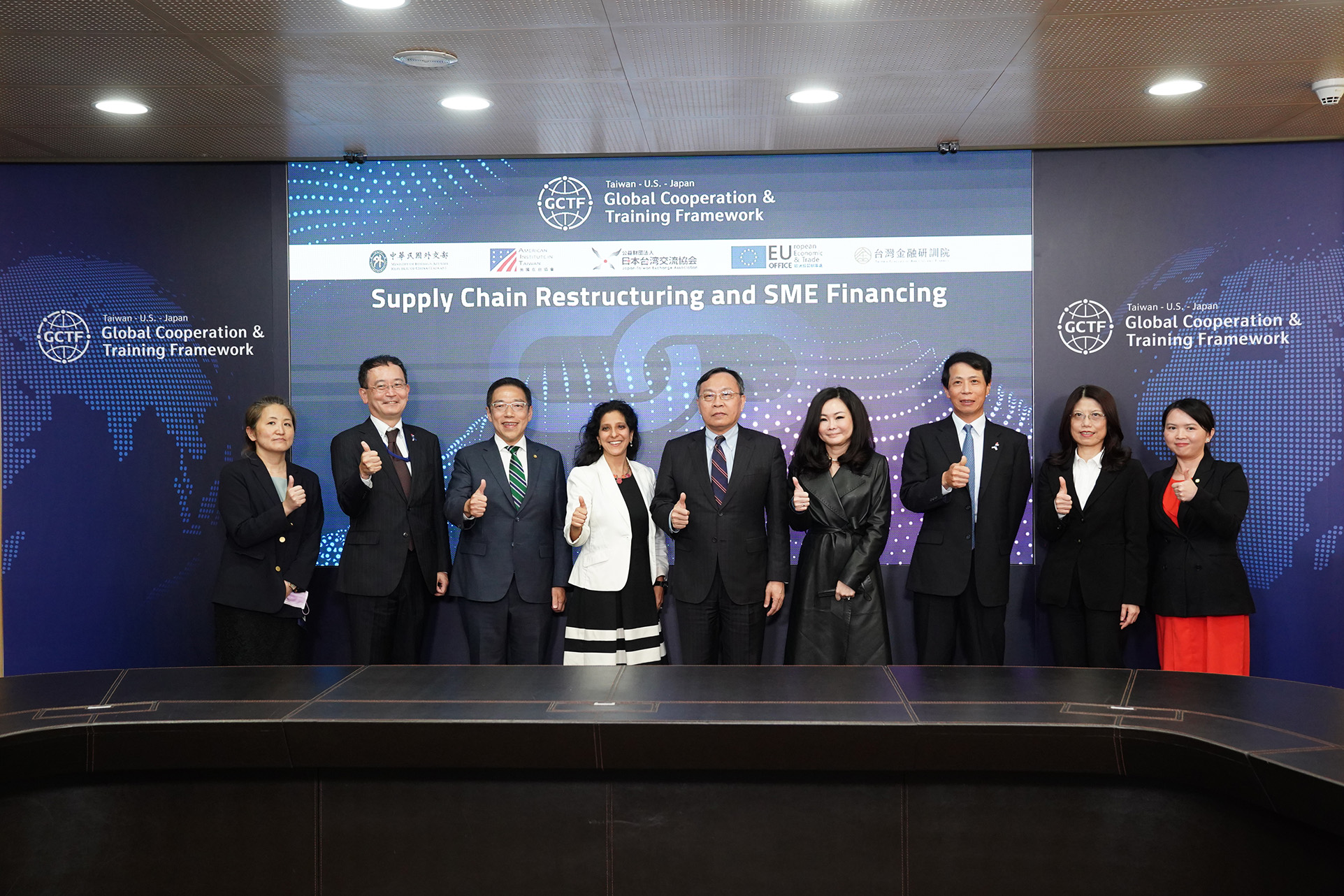Global Cooperation and Training Framework (GCTF) on Supply Chain Restructuring and SME Financing
Session 1: Global Supply Chain Restructuring In The Indo Pacific

Global Cooperation and Training Framework (GCTF) on Supply Chain Restructuring and SME Financing
Session 2: SME Finance and Their Roles In The Indo Pacific
On April 14, the Taiwan Academy of Banking and Finance co-organized a Global Cooperation and Training Framework (GCTF) event on Supply Chain Restructuring and SME Financing, co-hosted by the Taiwan Ministry of Foreign Affairs, American Institute in Taiwan (AIT), Japan-Taiwan Exchange Association (JTEA), and European Economic and Trade Office in Taiwan (EETO). The full-day workshop was held as a virtual seminar, and around 200 viewers from 30 countries participated online.
This was the first GCTF workshop to discuss the critical issue of how to rebuild more diverse and resilient supply chains in the Indo-Pacific region and empower SMEs to better adapt to an evolving global economy with robust support from the financial services industry, highlighting a shared mutual interest in tackling issues of global concern for inclusive prosperity and sustainability.
The supply chain restructuring session featured experts from the Information Technology and Innovation Foundation (US), Research Institute of Economy, Trade, and Industry (Japan), and Taiwan External Trade Development Council (Taiwan). The discussion focused on how to keep the high-value aspects of globalization under a total cost of ownership (TCO) perspective, while reducing vulnerabilities in the lower-value mass manufacturing and assembly stages.
Meanwhile, SMEs face unique financing issues due their limited transparency, lack of collateral, and weak bargaining power. They play an outsized role in Taiwan and other economies, but their financial service providers must often provide more a comprehensive set of services than with larger customers. Executives from Citi Commercial Bank, Mizuho Bank, and Mega International Bank shared relevant practices and experiences, while experts from the Bankers Association of the R.O.C. moderated an illuminating panel discussion.
“SMEs undoubtedly play a vital role in global supply chains, and as the backbone of national economies,” said Hank Huang, President of TABF. “They have been at the forefront of the disruption and challenges caused by the global pandemic. As a result, it is critical for us to work together to provide correct and robust support to SMEs to better adapt to our changing world.”
GCTF is a series of training workshops on topics of international concern, initiated by an agreement signed between Taiwan and the US on June 1, 2015. Japan has since joined as a full partner. The content of this workshop will be useful for like-minded countries aiming to improve their trade and investment ties with each other without compromising resiliency. TABF looks forward to further opportunities for Taiwan to share its expertise with the world.